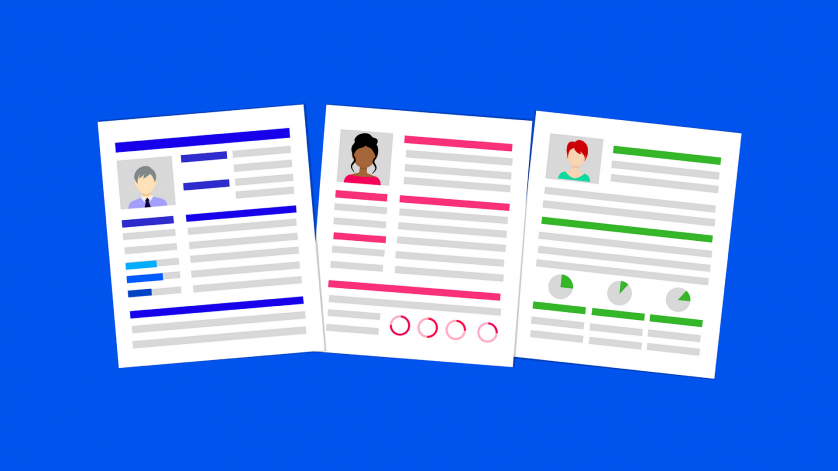The hiring manager will have many CVs to review for each role, they’ll end up looking hundreds over the month. Therefore, you need to make sure your CV is concise and immediately delivers the information you want to get across.
Firstly, its important to understand the role of the CV. It should be designed to provide an overview of your career and experience, to secure an interview for you. Once you’ve got an interview, you can go into more detail about particular experiences which will land you the role.
Things to include in a CV
Before editing your CV to adapt to the perfect length, make sure you’ve included all the elements that should be standard in a CV, including:
- Name and contact details
- Skills
- Experience
- Education
- References
We’ve put together a great guide on what else to include in your CV here:
How long?
Everyone’s CV will be different, yet we advise keeping it to 2 pages, potentially up to 3 pages if you’ve got plenty of relevant experience. That should be sufficient to provide enough detail for the hiring manager to decide on your suitability for a vacancy. Make sure you’re included plenty of detail on your roles and responsibilities, enough for them to recognise your skillset and invite you for an interview. So many people make the mistake of cutting their experience to a list of short bullet points, this is a major hindrance for both yourself and the hiring manager.
Our Tips – Keeping your CV short
If you’re finding you’re CV running over 3 or more pages, it can start getting confusing for hiring managers to keep track of your career when discussing it with you on the phone or in person.
Summarise your responsibilities
Treat your CV as a summary of your career, the interview or first discussion is where you can go into more detail. Don’t copy your job description, as these are often detailed and quite long. There’s no need to replicate this on your CV – keep to the main responsibilities and summarise any extra tasks into a generic category – marketing, administration etc.
Font
It might sound simple, but choosing a smaller font size can be a huge help and it can reduce the length of your CV dramatically. It’s also important to choose the right font as different fonts may use larger letters compared to others, even in the same font size. Plus, different fonts give different impressions to hiring managers, stick to a professional-looking font, the standard fonts are absolutely fine – though avoid Comic Sans!
Stylised CVs
There’s plenty of CV templates out there with lots of unique designs, however be sure to pick one that doesn’t take up too much space. If you’re choosing a template that splits your CV into two columns – headings and information – you could be losing a third of all the space. That’s not to say that all white space should be eliminated on a CV, rather use the space wisely to denote key sections.
That’s why the traditional black and white, title-heading-information format may look old-fashioned, but it’s the reason it’s remained the most popular for all these years. It’s simple to understand, hence the reader knows exactly what sections they want to read and can find them easily. Adding extra graphics and design cues may work if you’re looking to secure a creativity-based role in marketing, but it will detract from the crucial information in your CV if not.
Avoid repetition
One of the most common mistakes is making your CV look like you’ve swallowed a thesaurus. If you’re mentioning flexibility, there’s no need to mention your adaptability later in your CV. It takes up additional space which could be used to highlight other skills that the hiring manager is looking for.
Final Thoughts
To sum up, a CV should be around 2 or 3 pages long and shouldn’t be any longer than it needs to be. Remember this golden rule: your CV is a summary of your career, it doesn’t need to include everything about your experience. Hiring managers get hundreds of CVs to look through every month, so making sure you have a clear, concise and short summary of your career will give you the best chance at securing an interview for the role. Finally, don’t feel the need to make sure your CV’s final page is full either unless it needs to be.
With our tips, you’ll be able to condense your CV into a concentrated document where the reader can immediately understand your background and experience, giving the best chance of being invited for an interview.

